In the competitive landscape of the transportation and logistics industry, CarMax Trailer stands at the forefront by offering semi-trailers with meticulously engineered fuel tank capacities. Understanding and optimizing semi fuel tank capacity is paramount for fleet efficiency, cost-effectiveness, and operational reliability. This comprehensive guide delves into the intricacies of semi fuel tank capacity, exploring critical factors, comparative analyses, and the unparalleled solutions provided by CarMax Vehicle.
Understanding Semi Fuel Tank Capacity
Semi fuel tank capacity refers to the volume of fuel that a semi-trailer’s tank can hold. This capacity is a crucial determinant of a vehicle’s range, operational flexibility, and overall performance. The capacity directly impacts the distance a truck can travel before necessitating a refuel, thereby influencing logistics planning and fuel management strategies.
Key Definitions
- Capacity (Liters/Gallons): The total volume of fuel the tank can store.
- Efficiency (MPG or L/100km): How effectively the vehicle converts fuel into movement.
- Range (Miles/Kilometers): The total distance a vehicle can travel on a full tank.

Standard Capacities of Semi Fuel Tanks
Semi fuel tank capacities typically range based on the type of semi-trailer and its intended use. Here’s a comparative overview:
| Semi-Trailer Type | Typical Fuel Tank Capacity |
|---|---|
| Day Cab | 80-100 gallons (302-378 liters) |
| Sleeper Cab | 100-150 gallons (378-568 liters) |
| Refrigerated Trailer | 120-160 gallons (454-606 liters) |
| Flatbed Trailer | 90-130 gallons (341-492 liters) |
CarMax Trailer offers a diverse range of fuel tank capacities tailored to meet the specific needs of various industries, ensuring optimal performance and operational efficiency.
Factors Influencing Fuel Tank Capacity
Several factors determine the ideal fuel tank capacity for a semi-trailer, each playing a pivotal role in the vehicle’s overall performance and efficiency.
Vehicle Type and Usage
The primary function of the semi-trailer dictates the appropriate fuel tank capacity. For instance:
- Long-haul Trailers: Require larger fuel tanks to minimize refueling stops.
- Local Delivery Units: May benefit from smaller tanks due to shorter route distances.
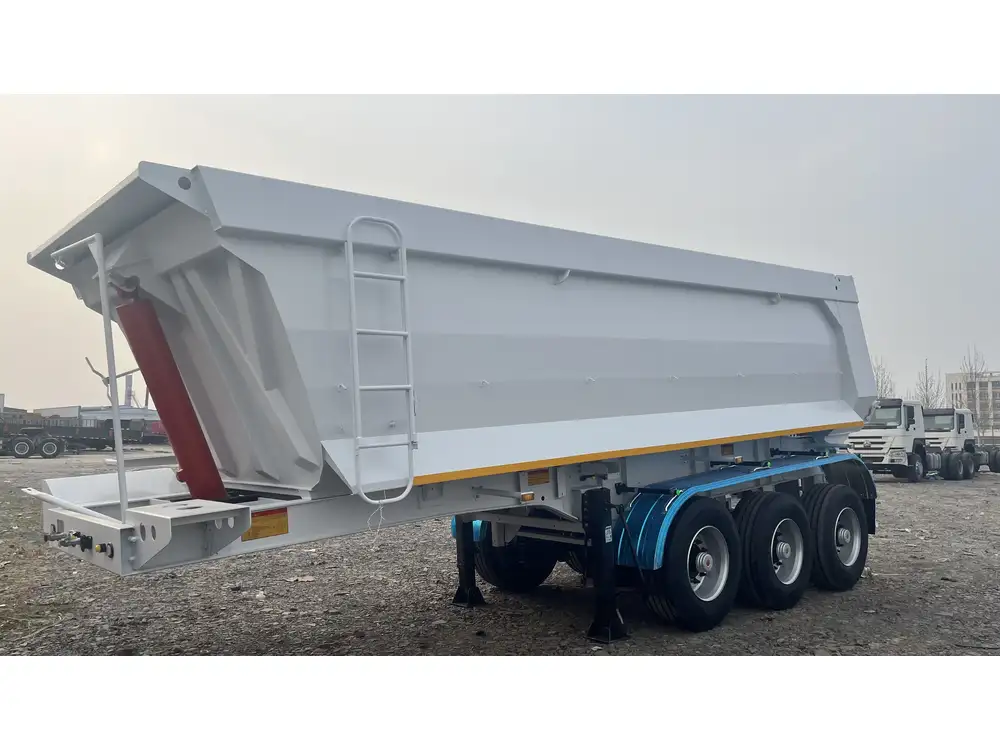
Regulatory Requirements
Compliance with federal and state regulations is essential. Laws may dictate maximum fuel tank sizes, especially concerning weight limits and safety standards.
Fuel Efficiency and Range
Optimizing fuel efficiency directly affects the required tank capacity. Enhanced fuel efficiency can reduce the need for excessively large tanks, balancing capacity with cost and weight considerations.
Payload Considerations
The payload capacity of a semi-trailer must account for the weight of the fuel itself. Balancing fuel capacity with payload ensures that trucks remain within legal weight limits while maximizing cargo capacity.
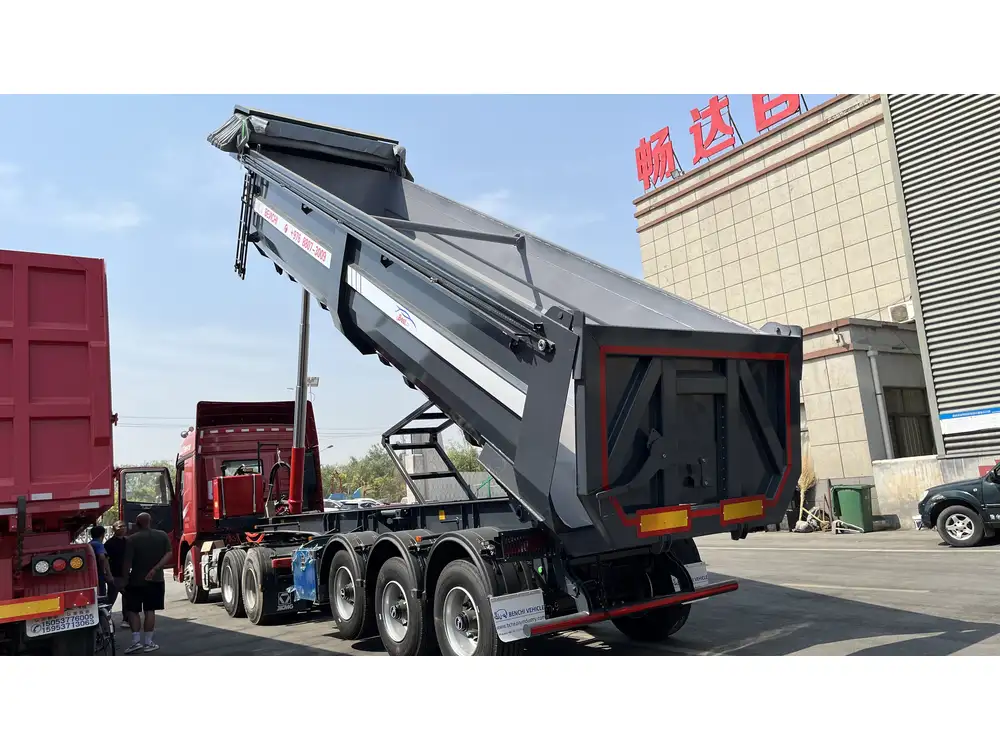
Comparing CarMax Trailer Fuel Tank Capacities
CarMax Vehicle offers a diverse array of fuel tank capacities, meticulously designed to cater to specific transportation needs. Below is a comparative analysis of select models:
| Model | Fuel Tank Capacity | Ideal Use Case | Key Features |
|---|---|---|---|
| CarMax Apex 500 | 150 gallons (568 liters) | Long-haul transport | Extended range, high durability |
| CarMax Swift 300 | 100 gallons (378 liters) | Regional deliveries | Lightweight design, easy maintenance |
| CarMax Frost 400 | 130 gallons (492 liters) | Refrigerated logistics | Insulated tanks, temperature control |
| CarMax Flex 350 | 120 gallons (454 liters) | Versatile applications | Modular design, customizable features |
This comparative table highlights how CarMax Trailer tailors its offerings to diverse operational needs, ensuring that each client finds the perfect fit for their logistical requirements.
Advantages of Optimal Fuel Tank Capacity
Selecting the appropriate fuel tank capacity offers numerous benefits that enhance operational efficiency and cost-effectiveness.
Extended Range and Reduced Refueling Stops
Larger fuel tanks provide an extended driving range, reducing the frequency of refueling stops. This is particularly advantageous for long-haul operations, where minimizing downtime can lead to significant time and cost savings.

Improved Fuel Efficiency
Optimizing fuel tank capacity ensures that vehicles carry enough fuel without being overburdened by excess weight. This balance enhances fuel efficiency, lowering overall operating costs and improving the environmental footprint.
Enhanced Payload Capacity
By precisely calibrating fuel tank capacity, semi-trailers can maximize payload without exceeding legal weight limits. This optimization ensures that maximum cargo is transported without compromising safety or compliance.
Cost Savings
Efficient fuel management, facilitated by optimal tank capacities, leads to substantial cost savings. Reduced fuel consumption and fewer refueling stops translate into lower operational expenses over time.

Customizing Fuel Tank Capacities with CarMax Vehicle
CarMax Vehicle excels in providing customized fuel tank solutions that cater to specific operational demands. Our customization process involves:
- Assessment of Requirements: Understanding the client’s operational scope, route patterns, and fuel consumption rates.
- Design Optimization: Engineering fuel tanks that maximize capacity while adhering to weight and regulatory constraints.
- Material Selection: Utilizing high-quality materials to ensure durability, corrosion resistance, and longevity.
- Integration: Seamlessly incorporating customized fuel tanks into existing trailer designs without compromising structural integrity or performance.
Maintenance and Safety Considerations for Fuel Tanks
Maintaining fuel tanks is crucial for ensuring safety, reliability, and longevity. Proper maintenance practices include:
Regular Inspections
Routine inspections detect leaks, corrosion, and structural integrity issues early, preventing potential hazards and ensuring compliance with safety standards.

Cleaning and Sanitization
Keeping fuel tanks clean prevents contamination, ensuring fuel quality and preventing engine issues that can arise from impurities.
Proper Ventilation
Ensuring adequate ventilation minimizes the risk of fuel vapor accumulation, reducing the potential for fire hazards and ensuring compliance with safety regulations.
Compliance with Regulations
Adhering to safety standards and regulatory requirements ensures that fuel tanks meet all necessary criteria, avoiding legal repercussions and enhancing operational safety.

Technological Innovations in Semi Fuel Tanks
The evolution of fuel tank technology has led to significant improvements in efficiency, safety, and functionality.
Advanced Materials
Modern fuel tanks utilize lightweight, high-strength materials that enhance durability while reducing overall weight, contributing to better fuel efficiency and payload capacity.
Smart Monitoring Systems
Integration of IoT-based monitoring systems allows real-time tracking of fuel levels, consumption rates, and tank conditions, enabling proactive management and maintenance.
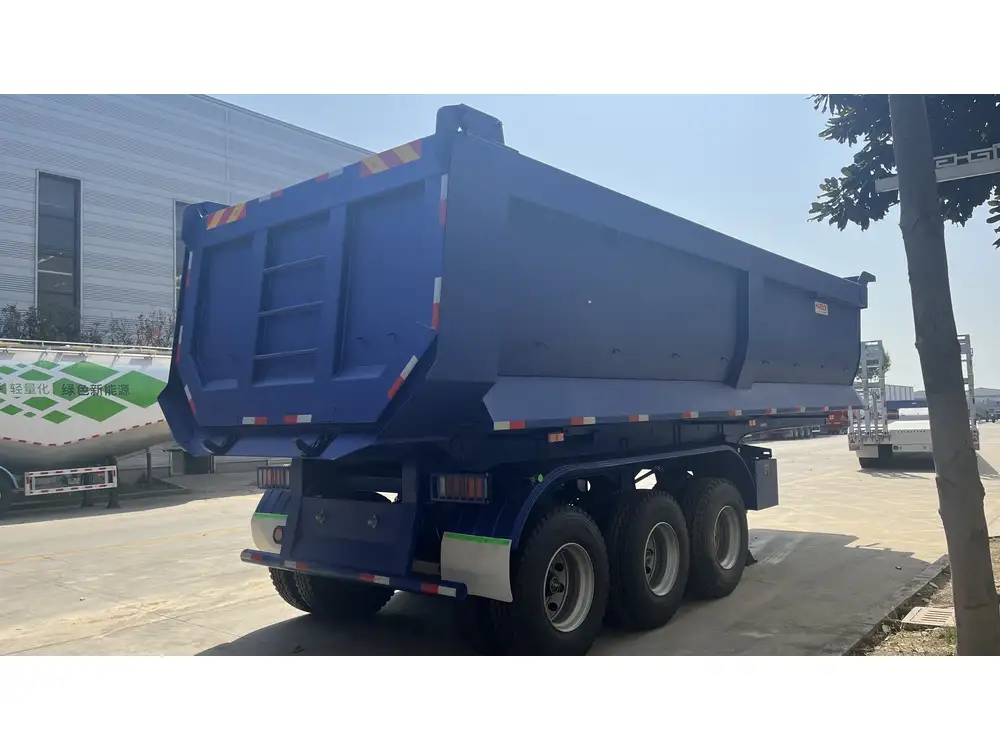
Modular Designs
Innovative modular designs offer flexibility in capacity adjustments, allowing semi-trailers to be easily reconfigured based on changing operational demands.
Eco-Friendly Technologies
Adoption of sustainable materials and designs minimizes environmental impact, aligning with global efforts towards greener transportation solutions.
Energy Efficiency and Environmental Impact
Optimizing fuel tank capacity directly influences energy efficiency and environmental sustainability. Efficient fuel management reduces consumption, lowers greenhouse gas emissions, and supports compliance with environmental regulations.

Fuel Consumption Reduction
Appropriate tank sizing ensures that fuel is used judiciously, minimizing waste and enhancing overall energy efficiency.
Emission Control
Reduced fuel consumption translates to lower emissions, contributing to a smaller carbon footprint and adherence to stringent environmental standards.
Sustainable Practices
Implementing eco-friendly fuel tank solutions reinforces a commitment to sustainability, appealing to environmentally conscious clients and stakeholders.
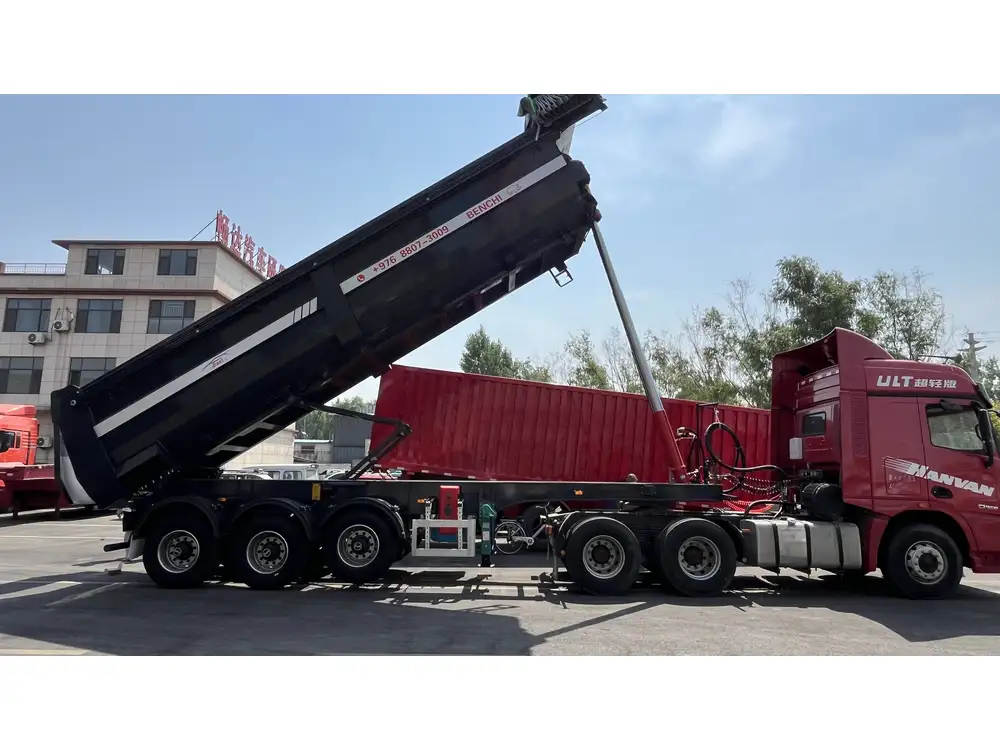
Choosing the Right Fuel Tank Capacity for Your Needs
Selecting the optimal fuel tank capacity involves a strategic evaluation of various factors to ensure that the semi-trailer meets all operational requirements effectively.
Assessing Route Demands
Analyze the typical routes, including distance, terrain, and refueling station availability, to determine the appropriate fuel capacity that minimizes downtime and maximizes efficiency.
Evaluating Payload Requirements
Balance fuel capacity with payload needs, ensuring that the trailer can carry maximum cargo without exceeding weight limits or compromising fuel efficiency.
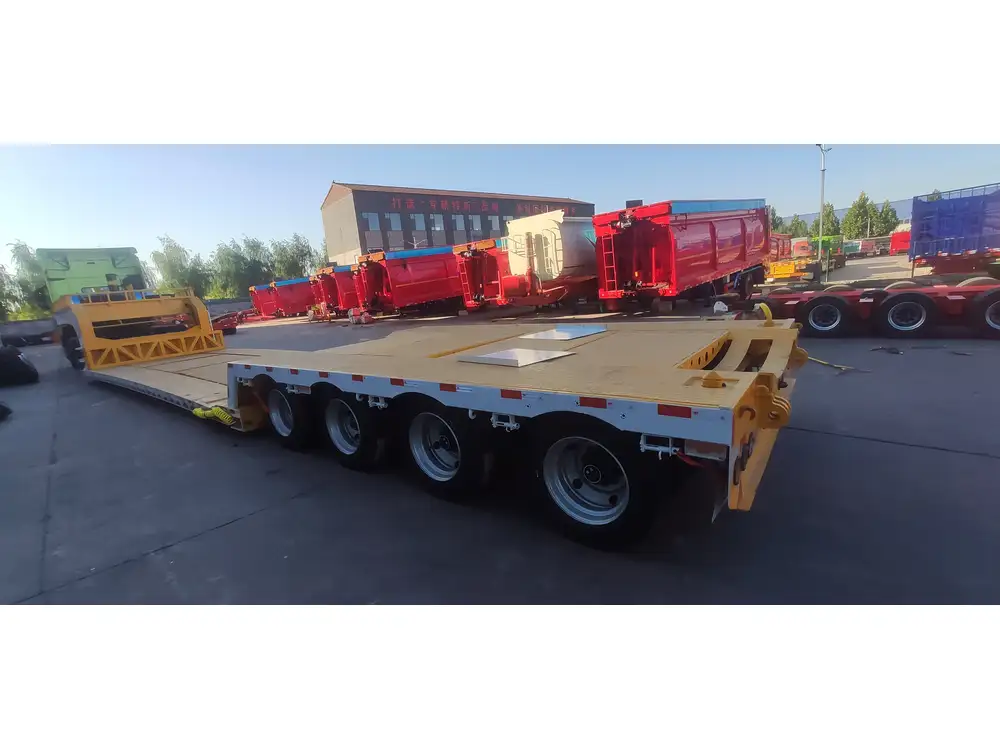
Considering Operational Costs
Factor in fuel costs, maintenance expenses, and potential savings from reduced refueling stops to make an informed decision on tank capacity that aligns with budgetary constraints.
Reviewing Regulatory Compliance
Ensure that the selected tank capacity adheres to all relevant regulations and safety standards, avoiding legal issues and ensuring smooth operations.
Consulting with Experts
Leverage the expertise of CarMax Vehicle to receive tailored recommendations and solutions that align with specific operational needs and industry best practices.
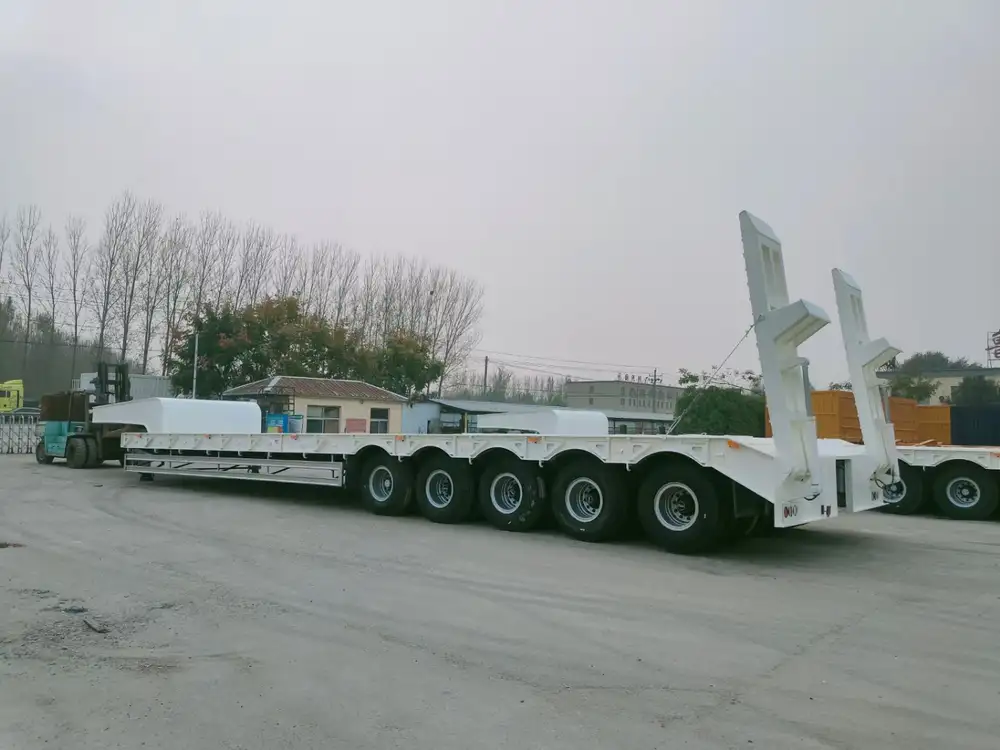
Conclusion
Understanding and optimizing semi fuel tank capacity is a cornerstone of efficient and cost-effective transportation operations. CarMax Vehicle excels in providing tailored fuel tank solutions that enhance performance, ensure compliance, and drive operational excellence. By meticulously considering factors such as vehicle type, regulatory requirements, and fuel efficiency, we deliver semi-trailers that meet the diverse needs of the modern logistics landscape. Partner with CarMax Trailer to experience unmatched quality and innovation in semi fuel tank capacity solutions, propelling your fleet towards greater efficiency and success.
Frequently Asked Questions
1. What is the standard fuel tank capacity for a long-haul semi-trailer?
Long-haul semi-trailers typically feature fuel tank capacities ranging from 100 to 150 gallons (378 to 568 liters), providing an extended range to minimize refueling stops during long-distance journeys.
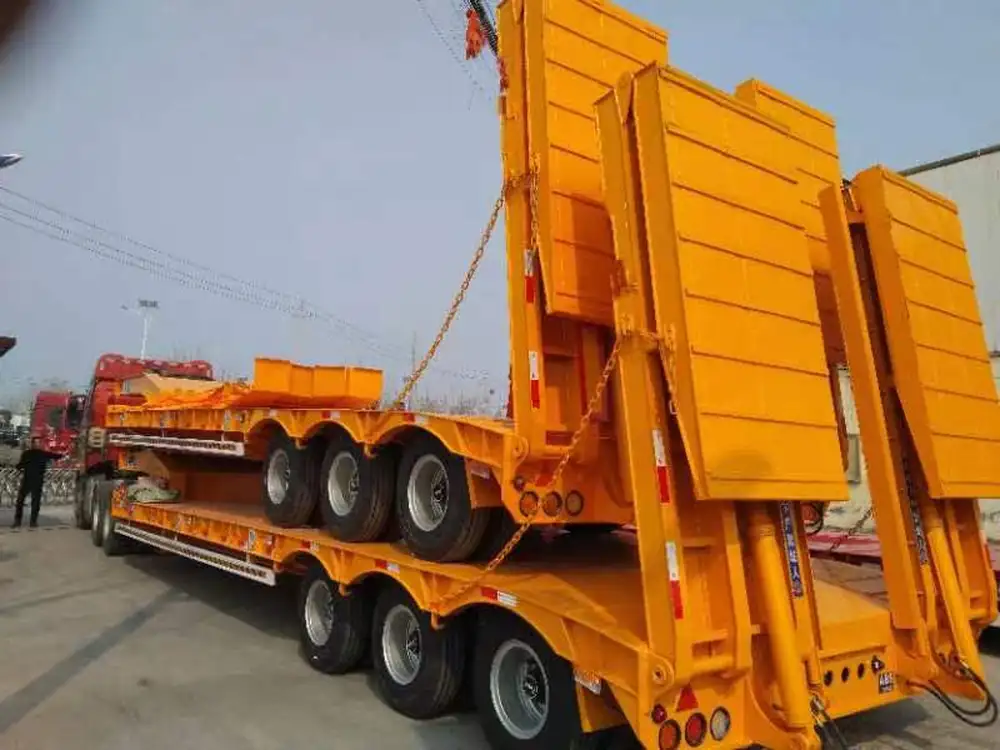
2. How does fuel tank capacity affect the overall payload of a semi-trailer?
Fuel tank capacity directly impacts the payload by adding weight. Optimal tank sizing ensures maximum cargo is transported without exceeding legal weight limits, balancing fuel needs with payload requirements.
3. Are there customizable fuel tank options available for specialized transportation needs?
Yes, CarMax Vehicle offers customizable fuel tank solutions tailored to specific operational demands, ensuring that each semi-trailer meets unique logistical requirements effectively.
4. What maintenance practices are essential for ensuring the longevity of semi fuel tanks?
Regular inspections, cleaning and sanitization, proper ventilation, and adherence to safety standards are critical maintenance practices that ensure the longevity, safety, and reliability of semi fuel tanks.
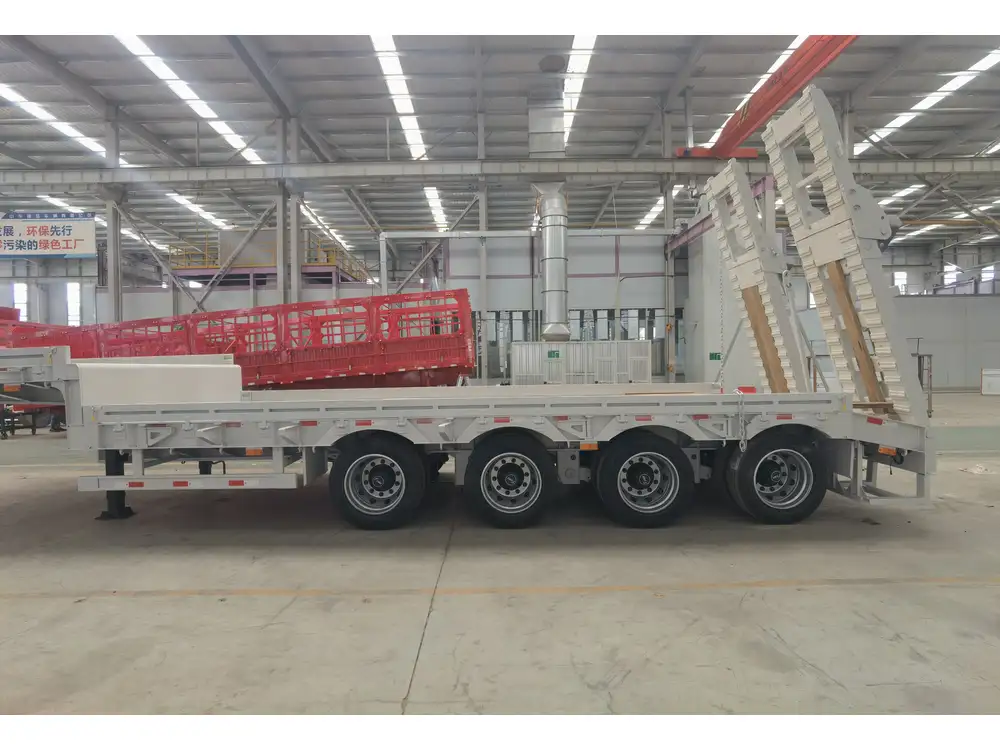
5. How do advanced materials in fuel tanks contribute to better fuel efficiency?
Advanced materials enhance durability while reducing the overall weight of the fuel tank, contributing to better fuel efficiency by lowering the energy required to move the vehicle, thereby optimizing fuel consumption.



